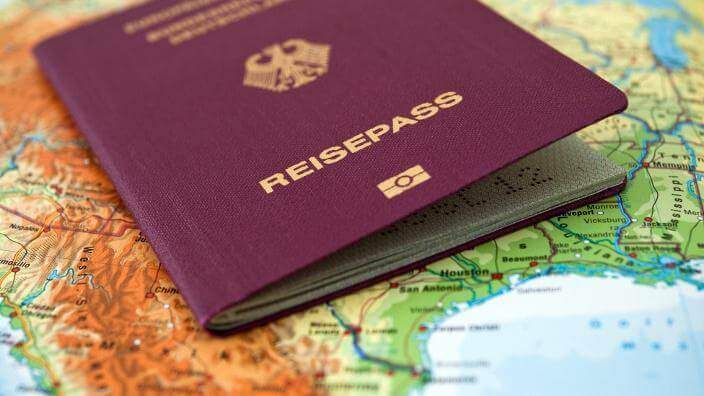
German citizens still have the world’s most powerful passport according to new research, while the UK has risen one spot – despite Brexit, writes Emelia Hamilton-Russell
Some passports are worth more than others, and new research by Henley & Partners, a global residence and citizenship planning firm, has found that the German passport is still the best of the bunch. The ranking, released today, takes into account how many countries can be visited without applying for a visa.
It reveals that German passport holders can travel to 177 out of a possible 218 countries, while the British passport – whether it’s black or blue – only grants access to 175. This means that Germany retains first place in the Henley Passport Index for the fifth year running while the UK shares third place with Denmark, Finland, France, Italy, Japan, Norway and Sweden. Singapore ranks second globally on the 2018 index, with visa-free access to 176 countries.
Back in 2015, the UK topped the rankings, alongside Germany, but ceded that spot after several countries relaxed visa restrictions on Germany. Britain was overtaken by Sweden last year.
The biggest movers in this year’s index were Georgia and Ukraine, which completed the visa-liberalization process with the EU in 2017 and gained access to 30 and 32 new countries, respectively. Georgia was the highest individual mover, climbing 15 places, while Ukraine ascended 14 ranks. China, Sierra Leone, Guinea, the Dominican Republic, and Indonesia also performed strongly this year, each gaining seven or more places compared to 2017. Several countries lost ground, including Cyprus, Sweden, Spain, Greece, Taiwan, and Antigua.
‘There is still huge disparity in the levels of travel freedom between countries, despite the world becoming seemingly more mobile and interdependent,’ says Christian Kälin, chairman of Henley and Partners. ‘Generally, visa requirements are a reflection of a country’s relationship with others, and take into account diplomatic relationships between countries, reciprocal visa arrangements, security risks, and the dangers of visa and immigration regulation violations.’
Kälin believes that investment migration is the most direct route to improved mobility, pointing out that ‘alternative citizenship represents the most direct route to global mobility, connectivity, and access. Individuals who have multiple passports benefit from each country’s best practices and are less vulnerable to its risks and shortcomings.’
The study indicates that more governments than ever are embracing residence- and citizenship-by-investment programmes as a means of stimulating economic development and growth. ‘Malta, for example, offers the top-ranked investment migration program globally, and the country also scores very highly on the index, holding the world’s 9th most powerful passport and offering visa-free access to 169 countries,’ he says. ‘Austria also makes it into the top 10, with access to a total of 174 countries. Cyprus is not far behind in 17th place, with 159 countries accessible visa-free.’ Caribbean countries offering citizenship-by-investment programmes have likewise performed well on this year’s index.
Emelia Hamilton-Russell is a writer and researcher for Spear’s






